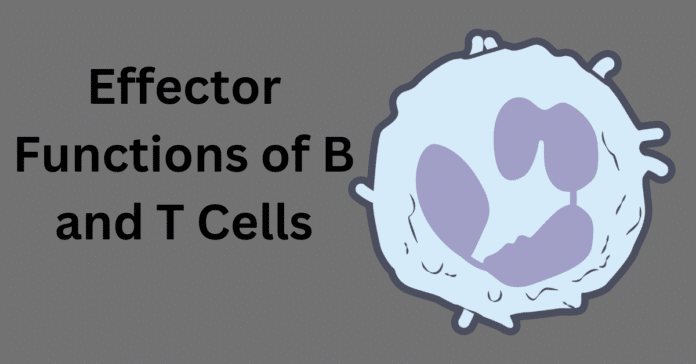In the complex world of immunology, B and T cells play critical roles in maintaining our body’s defense mechanisms. These cells, essential components of the adaptive immune system, exhibit a variety of effector functions that are crucial in recognizing and eliminating pathogens, as well as in the context of cancer biology. Understanding these functions provides valuable insights into how our immune system can be harnessed to combat cancer.
B Cells and Humoral Immunity
B cells are unique in their ability to recognize a vast array of antigens through their B cell receptors (BCRs). Upon encountering specific antigens, B cells become activated and differentiate into antibody-secreting plasma cells. These plasma cells are central to humoral immunity, producing large quantities of antibodies tailored to target and neutralize pathogens. In the realm of cancer biology, these antibodies can recognize and bind to tumor-specific antigens, marking cancer cells for destruction by other immune cells.
T Helper Cells and Immune Coordination
T helper (TH) cells execute their effector functions by detecting antigens presented by major histocompatibility complex class II (MHC-II) proteins on the surface of antigen-presenting cells. Once activated, TH cells secrete a variety of cytokines that orchestrate broad immune responses. These cytokines stimulate different cells of both the innate and adaptive immune systems, enhancing their ability to fight infections and tumors. In cancer, TH cells can help in activating cytotoxic T cells and other immune cells that target cancer cells, thereby playing a pivotal role in anti-tumor immunity.
Cytotoxic T Cells and Targeted Cell Destruction
Cytotoxic T cells, also known as CTLs, recognize antigens presented by major histocompatibility complex class I (MHC-I) proteins on the surface of infected or transformed host cells. Upon activation, CTLs directly interact with these target cells, leading to their destruction through the release of cytotoxic molecules. This mechanism is vital in eliminating cells infected with intracellular pathogens and in targeting cancerous cells. By recognizing and killing tumor cells, CTLs serve as a crucial line of defense against cancer proliferation.
Regulatory T Cells and Immune Homeostasis
Regulatory T cells (Tregs) are essential for maintaining immune balance by suppressing excessive or inappropriate immune reactions. Through various mechanisms, Tregs modulate immune responses, helping to prevent autoimmune diseases by dampening immune activity when necessary. In cancer, Tregs can have a dual role. While they are important for preventing autoimmunity, they can also suppress anti-tumor immune responses, enabling cancer cells to evade the immune system. Understanding how to modulate Treg activity is a significant focus in cancer immunotherapy, aiming to enhance the immune system’s ability to fight cancer while maintaining tolerance to normal tissues.
Coordinated Roles in the Adaptive Immune System
The coordinated actions of B cells, TH cells, cytotoxic T cells, and regulatory T cells are essential for an effective adaptive immune response. In cancer biology, leveraging these cells’ functions can provide strategies for targeted therapies. By enhancing the immune system’s ability to recognize and destroy cancer cells, while regulating immune tolerance, researchers and clinicians can develop innovative treatments to improve patient outcomes.
Conclusion
The effector functions of B and T cells highlight their importance in the adaptive immune system and their potential in cancer therapy. From antibody production by B cells to the direct killing of tumor cells by cytotoxic T cells, each cell type contributes to a complex but coordinated immune response. Understanding these roles is crucial for advancing cancer immunotherapy and developing strategies to harness the body’s immune system in the fight against cancer.
For more in-depth insights and research updates in cancer biology, visit our blog at Cancer Biology Research. Stay informed about the latest advancements and explore how cutting-edge research is shaping the future of cancer treatment.


